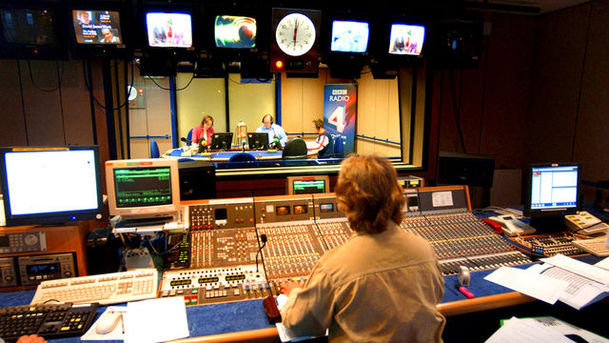Today - 14/11/2009

Presented by John Humphrys and Evan Davis. The Ministry of Defence says it is investigating 33 new allegations of abuse by UK troops during the years they spent in Iraq. World affairs correspondent Caroline Hawley reports on the allegations. The BNP's national conference is taking place in Wigan. North west political editor Arif Ansari reports on the event. It is beginning to look unlikely that the Copenhagen climate talks will agree on the level of CO2 cuts being demanded by the Intergovernmental Panel on Climate Change to avoid what they consider to be a dangerous level of warming. Environment analyst Roger Harrabin reflects on the implications. President Obama says he will decide soon if he is to send many more troops to Afghanistan. John Zogby, one of the US's leading pollsters, gives his analysis of the effect of the decision on the president's popularity. A convicted murderer who had been released from prison on licence has been convicted of raping a woman at knifepoint, re-enacting the crime he had committed 22 years before. Home affairs correspondent Danny Shaw reports on the background to the case and James McGuire, Professor of Clinical Psychology at Liverpool University, discusses the implications for the parole board's decision. Four weeks ago the Pakistani army started an offensive against militants in the tribal area of Waziristan. Few westerners have been to the area but three years ago Art Keller was the acting chief of one of the CIA bases there, charged with tracking down Bin Laden and other Al Qaeda operatives. He told reporter Zubeida Malik what was likely to be the situation on the ground in Waziristan. Thought for the Day with Canon David Winter. What would Britain be like if drugs were legal and there was a regulated market in their sale? Pressure group Transform Drug Policy Foundation is publishing a report suggesting just that. Their head of research, Steve Rolles, discusses the issue with Tom Wainwright, home affairs correspondent for The Economist. The Ministry of Defence has said it is investigating 33 new allegations of abuse by the UK military in Iraq. Lawyers acting for former Iraqi detainees are calling for a full public inquiry into all abuse claims made during UK military involvement there. Iraqi human rights campaigner Mazin Younis, who has been collating and documenting the stories of alleged victims of abuse, outlines the allegations. Minister for the Armed Forces Bill Rammell discusses whether there is a widespread problem of abuse in the UK armed forces. Five hundred years ago Venice was one of the most highly populated cities in the world. Now, inhabitants number just 60,000. Some of those who remain are staging a mock funeral to try to provoke the government to save the city. Architect Francesco da Mosto, who presented Francesco's Venice on BBC2, and author Donna Leon discusses the death of Venice. Last month NASA deliberately crashed two spacecraft into a crater near the south pole of the moon to see if the impact would kick up water. NASA yesterday revealed that they did. Author and astronomer Dr David Whitehouse analyses the importance of the discovery. In Washington, President Obama is facing the toughest decision of his short presidency over whether ornot to send more troops to Afghanistan. The issue has split opinion both in the US and here. Reporter Bob Walker went out in Nottingham to ask people what they thought about the continuation of the war and constitutional theorist Professor Philip Bobbitt discusses Barack Obama's strategic options. The World Memory Championships are taking place in London. Contestants have to memorise long streams of numbers or the sequence of 35 entire decks of cards. Reporter Sanchia Berg went along to speak the world's top brain athletes. Millions are watching it, the tabloids are obsessing on it, but Sting hates it. Paul Gambaccini discusses whether The X Factor does anything to nurture real musical talent. Everyone knows there is a difference between our left brain and our right brain, but most are not clear on the difference. Now, one of the world's leading brain experts has published research that sheds new light on the split, which he says has real implications for the way the modern world is changing. Dr Iain McGilchrist discusses his book, The Master and His Emissary. Over the past month we've been hearing from Major Richard Streatfeild, who is serving in Helmand province with the Rifles. In a grim irony, Remembrance Week coincided with the first deaths among the members of A Company, which he commands. In his latest despatch, Major Streatfeild reflects on the loss, and what Remembrance Week means for him and his men.